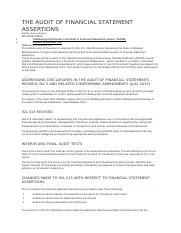
They typically use accounting software that links to a business bank account, monitors its transactions, and generates financial reports. The requirements of small business accounting come down to a handful of best practices and essential reports, which you can do manually or with accounting software. Other accounting services small businesses may use include bookkeeping, strategic finance, and tax accounting. The financial statements which include the income statement, statement of changes in equity, balance sheet, statement of cash flow and notes are the end products of the accounting system. Once the adjusting entries are made, an adjusted trial balance must be prepared. This is done to test if the debits match the credits after the adjusting entries are made.
Trust me, if you’re looking to keep track of your finances efficiently and gain a comprehensive understanding of accounting, these books will help. Ecommerce accounting often uses the cash basis accounting system, in which bookkeepers declare revenues and expenses at the moment they are actually received or paid. The double-entry method counterbalances each bookkeeping entry with a corresponding and opposite entry in a different account. You would record a debit entry of $225 in an expense account and an offsetting credit entry of $225 in a cash asset account. From best phone service for non profit organizations there, you might want to learn more about your small business’s financial management.
Without a clear financial picture, it can be difficult to move your business forward. Unless you have a very small volume of transactions, it’s better to organize separate files for assorted receipts weekly or as they come in. Most accounting software lets you scan paper receipts and avoid physical files altogether. After recording transactions, you’ll want to keep copies of your invoices and all receipts.
Mark P. Holtzman’s “Managerial Accounting For Dummies” simplifies complex managerial accounting concepts for students, professionals, and small business owners. The book navigates through fundamental aspects of managerial accounting, providing insightful explanations and practical examples. When an entrepreneur dreams of launching their own business, those dreams don’t include scrutinizing balance sheets and income statements. A lot of small business owners have a great passion for their products, but nearly zero background in accounting or bookkeeping. Plus, the book offers valuable advice for setting up your accounting system wisely.

Forbes Advisor has put together this guide to help you understand the basics of small business bookkeeping. This comprehensive guide, crafted by the Tracy duo, serves as an invaluable tool for small business owners. Navigating through financial intricacies, the authors provide tangible strategies to manage, forecast, and analyze small business finances. Discover the core accounting principles, from financial statements to the intricacies of debits and credits. The book equips readers with essential skills for managing finances, understanding profit and loss statements, and making informed decisions to ensure the sustainability of their businesses. As a small business owner, having a solid grasp of accounting principles is vital.
Many smaller businesses—with small numbers of financial transactions—appreciate the simplicity of a single-entry system. A double-entry accounting system can be a suitable accounting method for a business of any size, but it helps to have a trained bookkeeper recording your transactions if you use this method. As a result, you can set up bookkeeping and accounting systems that are efficient and easy to manage. Plus, you’ll know the key terms and better understand your financial performance overall. You’ll walk away with a clear understanding of how to account for your business and hands-on experience from practice examples.
They help you realize and manage the cash flows going in and out of your company, which is useful when applying for business loans or filing taxes. For anyone struggling with financial statements, this book turns seemingly intimidating accounting concepts into comprehensible knowledge. It’s a practical tool for small business owners aiming to get a handle on their company’s financial reports without getting bogged down in accounting technicalities. The book covers the basics of accounting, breaking down terms and calculations that are fundamental to the practice. With concise explanations, readers will grasp how accounting mechanisms work, from debits and credits yield curve definition interest rates to financial statements and accounting for income taxes.
This guide is a great way to break down complicated words and learn the language of accounting. Accounting books are a great way to sharpen your knowledge so you can track and understand your finances like a pro. Luckily, there are plenty of books that how long should you keep business records can demystify the concept of accounting so you can more easily manage your business. Note that you’ll need to pay some payroll taxes, such as FICA taxes, to the IRS monthly or sem-weekly, depending on the amount you withhold. However, for FUTA taxes, deposits are typically due quarterly, and you’ll file your FUTA return (Form 940) annually. Just as you may reconcile your personal checking account, you need to know that your cash business transaction entries are accurate and that you are working with the correct cash position.